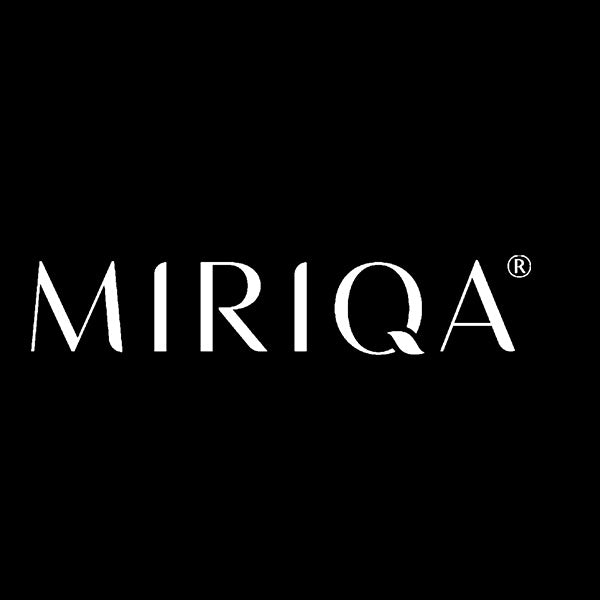Are Hair Loss Supplements a Hoax? Singaporean Doctor Has Surprising Facts to Share
Hair loss affects millions worldwide and can stem from various factors. As affected individuals strive to combat this concern, numerous remedies, both conventional and unconventional, flood the market, leaving many questioning their efficacy.

Daily Vanity spoke to Dr. Gerard Ee, , a prominent Singaporean aesthetic doctor from The Clifford Clinic, to understand more about the root causes of hair loss and debunk prevalent myths surrounding home remedies and supplements.
Dr. Gerard Ee is fully accredited in aesthetic procedures such as Botox, fillers, lasers and light therapies; his clinic also offers hair loss treatments, including hair transplant.
Can Home Remedies Help With Hair Loss?
“Hair loss is a complex issue,” Dr. Ee explained, “it can stem from multiple causes, including genetics, stress, dietary deficiencies, and external factors like trauma or pregnancy.”
While there are no recorded statistics on how often people use home remedies to treat hair loss, a search on social media platforms like TikTok shows that they’re highly popular; many of them have garnered millions of views.

Many of these videos recommend applying ingredients such as onion juice, coconut oil, or even egg yolk to the scalp.
Regarding these home remedies, Dr. Ee said they’re based on compounds that are found in solutions that are proven to be beneficial for hair growth.
“For example, vitamin E and amino acids are known to be needed for healthy hair growth and vitamin E is found in coconut oil while onions are naturally high in sulphur, which contains amino acids. Extrapolating from this, applying coconut oil or onion juice is thought to encourage hair growth by supplying the hair follicles with nutrients,” he explained.
However, before you head to your kitchen to make onion juice, Dr. Ee expressed caution towards these home remedies.

“As a medical professional, I would be hesitant to recommend the use of home remedies due to the lack of clinical research backing such claims,” he warned.
Dr. Ee added, “In my opinion, I doubt that these remedies are able to substantially influence hair growth due the manner in which they are administered: via topical application.”
The reason? Larger compounds like sulphur or amino acids cannot be absorbed into the bloodstream via the skin, Dr. Ee explained.
“And even for compounds like vitamins that may be small enough to be absorbed, they’re only found in trace amounts in coconut oil; the concentration is unlikely to be high enough to make a difference.”
Can Hair Supplements Help With Hair Loss?
Another form of “home solution” (as opposed to in-clinic or in-salon treatments) is hair supplements, which has also attracted the interest of the hair-conscious crowd.

“Hair supplements are different from home remedies,” Dr. Ee pointed out.
“Hair supplements are formulated specifically for targeting the hair and the scalp and are thus designed to provide the specific nutrients needed by the hair follicles in the appropriate quantities and concentrations required to be effective,” he explained.
According to Dr. Ee, this is unlike home remedies that rely on trace amounts of beneficial compounds present in the solutions that may not be concentrated enough to be effective even if they do reach the follicles.
“Consuming hair supplements can make a difference in preventing hair loss, however, how effective the supplement is depends on the root cause of the hair loss; hair loss caused by genetics, immune disorders, or chronic hormonal imbalance are harder to treat or prevent,” he said.

Another factor that affects the effectiveness of the supplement? Whether or not hair follicles are still active, Dr. Ee said.
“It is generally easier to encourage growth while the hair follicles are still active and producing hair, while it is much harder to stimulate a ‘closed’ follicle to start producing new hairs again,” he explained.
“That being said, since hair supplements are engineered to deliver nutrients to hair follicles, they excel in improving hair loss or hair shedding that is caused specifically by malnutrition and/or vitamin deficiencies.
For this same reason, they are very effective in boosting the rate of hair growth after temporary bouts of shedding caused by temporary hormonal changes such as postpartum hair loss, or after the cause of traction or frictional alopecia (this refers to physical trauma to the hair) is corrected.”
Dr. Ee’s Recommendations of Hair Supplements That Work

“One hair supplement I’ve tried myself is Miriqa Hair,” Dr. Ee shared.
“In fact, I am still taking it even though I have already achieved my desired hair volume as a preventative supplement to guard against future ageing related hair loss and hair thinning.”
Dr. Ee shared that he saw results after 4.5 months since taking the supplement.
“I am satisfied with how substantially fuller my hair looks.
I also noted an increase in the thickness of the diameter of each of my hair strand, which in turn increased the strength of my hair against physical stress significantly, evident by fewer strands of hair breaking or falling out when I style my hair in the morning.”

It’s probably not surprising that Dr. Ee was able to achieve positive results.
“Miriqa Hair supplements are engineered with key ingredients known for their clinical efficacy,” Dr. Ee elaborated. “Tocotrienol, Biotin, Tripeptide Collagen, Keratin Forte, and Saw Palmetto Berries are among the potent ingredients found in Miriqa Hair.”
Dr. Ee explained what each of these ingredients can do for the hair and scalp:
- Tocotrienol, a compound from the vitamin E family, is a potent antioxidant that can stimulate hair regeneration by improving Vitamin E absorption, reducing scalp damage from free radicals, and repairing damaged hair follicles. It also contains phytosterols, squalene, and mixed carotenoids, which promote healthy hair growth.
- Biotin, a compound from the vitamin B family, is essential for strengthening and maintaining healthy hair and nails. Its deficiency can cause brittle nails and hair loss.
- Tripeptide Collagen, found in the skin tissue surrounding hair follicles, moisturises the scalp, strengthens and thickens hair follicles, and promotes existing hair growth. Collagen depletion due to ageing can lead to hair growth retardation.
- Keratin Forte, a structural compound found in skin, hair, and nails, has been shown in clinical studies to increase hair strength and thickness and reduce hair loss when taken as a supplement.
- Saw Palmetto, an extract from the berries of the Serenoa palm, blocks the activity of 5-alpha-reductase, an enzyme involved in elevated dihydrotestosterone (DHT) levels. High DHT levels can shrink hair follicles and shorten the hair growth cycle, leading to androgenic alopecia. Saw palmetto acts as an enzyme inhibitor, which curb hair loss.

When asked about the timeline for noticeable results, Dr. Ee advised, “Results may vary, but improvements are typically visible by the sixth month, with potential early signs of change by the third or fourth month.”
“Overall, I am very pleased with this product and I would not hesitate to recommend it to those suffering from thin or brittle hair,” he highlighted.
Other Hair Loss Prevention Tips

Dr. Ee strongly advocated for a holistic approach to combating hair loss. Besides supplements, he recommended medical treatments including stem cell therapy, laser treatment, and ultrasound treatment to achieve hair growth results or prevention of hair loss.
“These complement the benefits of supplements like Miriqa Hair for more robust outcomes,” he said.
For individuals concerned about potential hair loss due to family history, Dr. Ee advised proactive measures. “Expand your diet to include hair-friendly nutrients, consider supplements preventatively, and avoid hairstyles or practices that stress the hair,” he advised.
To see the rest of the article, head over to Daily Vanity.





